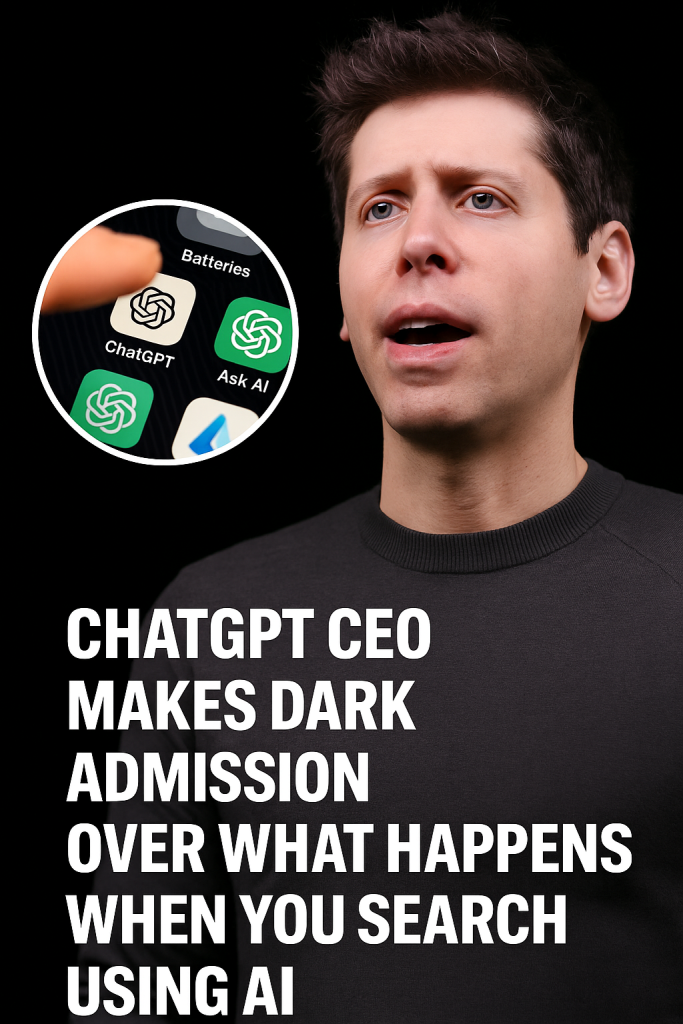In a startling revelation that has sent ripples across the AI and tech communities, the CEO of TCP made a dark admission regarding the behavior of ChatGPT when users perform searches through its interface. This unexpected disclosure raises pressing questions about transparency, AI ethics, and the future of AI-driven search engines.
The controversy began when a widely circulated image on social media featured the CEO alongside a cryptic statement hinting at hidden truths behind how ChatGPT processes search queries. The CEO reportedly acknowledged that the AI’s responses might be influenced by factors that users generally do not see or understand—significantly impacting what results users receive and how information is prioritized.
While TCP has long been recognized as a major player in AI development, this announcement is the first time leadership has openly addressed potential algorithmic biases or concealed content manipulation mechanisms within ChatGPT’s search function. The CEO’s comments implied that under the hood, the AI might be filtering or altering data in a way that serves specific agendas, raising alarms about user autonomy and data reliability.
Industry experts have reacted with a mix of concern and curiosity. Some analysts suggest that AI systems like ChatGPT inherently require curated data to avoid spreading misinformation, but the CEO’s admission points to a lack of clear guidelines and oversight. “This moment underscores the urgent need for transparency in AI search operations,” remarked an AI ethics specialist. “When users don’t fully understand how their queries are processed or which factors influence the answers, trust in these platforms can erode rapidly.”
Furthermore, the mention of “Batteries ChatGPT Ask AI” in the CEO’s statement has intrigued many. Analysts speculate this could refer to an internal framework or system within ChatGPT that governs how energy-efficient computational resources are allocated during searches—possibly affecting speed and comprehensiveness of answers. However, the true meaning remains unclear as the company has not provided further clarification.
This disclosure arrives at a time when ChatGPT and similar AI models are increasingly integrated into daily life, from academic research to customer service. Users often expect these platforms to provide objective, unbiased information, yet the CEO’s dark admission suggests that behind the scenes, search results may not always be as neutral as presumed.
In response to the growing backlash, TCP has pledged to increase transparency in its AI technology. A spokesperson indicated that upcoming updates will include more detailed explanations about how data is sourced, processed, and presented to users. Additionally, the company aims to collaborate with AI ethicists and regulatory bodies to establish clearer standards for search engine algorithms embedded in conversational AI.
For now, the incident serves as a crucial reminder about the complexities and challenges in managing AI-driven information systems. As users, it may be wise to approach AI-generated search results with a critical eye and demand more openness from the companies developing these technologies.
The technology is powerful, but the truth behind its operation matters just as much.



